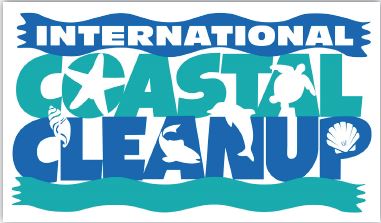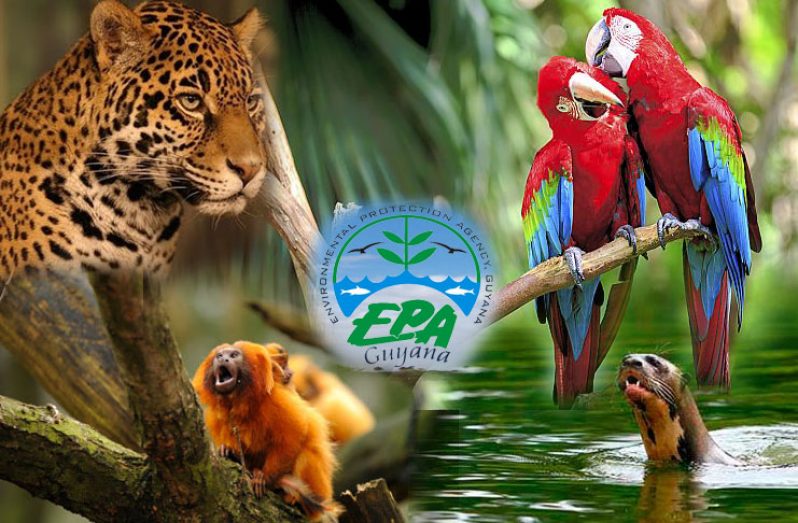 OVER the past two Saturdays, there was a hub of activity along two popular segments of our coast, namely the Kingston Seawall and No. 63 Beach. Volunteers, mainly from Regions Four and Six, turned out in their numbers to support International Coastal Clean-up, 2017. Having its origin in the United States, this event has grown exponentially to nearly 12 million volunteers and has impacted the length and breadth of the globe. While the designated date for the event is the third Saturday in September, clean-up activities can be organised throughout the year. As such, the EPA assisted the Caribbean Youth Environment Network (CYEN) to coordinate Coastal Clean-up activities in Guyana, on September 30 and October 06, 2017.
OVER the past two Saturdays, there was a hub of activity along two popular segments of our coast, namely the Kingston Seawall and No. 63 Beach. Volunteers, mainly from Regions Four and Six, turned out in their numbers to support International Coastal Clean-up, 2017. Having its origin in the United States, this event has grown exponentially to nearly 12 million volunteers and has impacted the length and breadth of the globe. While the designated date for the event is the third Saturday in September, clean-up activities can be organised throughout the year. As such, the EPA assisted the Caribbean Youth Environment Network (CYEN) to coordinate Coastal Clean-up activities in Guyana, on September 30 and October 06, 2017.
WHY CLEAN UP THE COAST?
It’s important to note that while the primary aim of the clean-up event is ridding the coast of trash, its objective is also to collect vital information as to the types of trash that inhabit our coasts and beaches. This is so because the trash that accumulates along our coast is actually a representation of the trash that is generated inland (litter). This connection is made because of trash travels. The empty plastic bottle that is dropped carelessly on the ground doesn’t just stay there nor does it just magically disappear! More often than not, it is blown by the wind or carried by water to a drain, thereby beginning a journey that could take it to the other side of the globe! It is likely that some items found along our coast originated from other countries. This fact highlights the importance of the event being a global one.
MARINE LITTER HARMS MARINE LIFE
Another important reason for Coastal Clean-up activities is the fact that trash along our coasts can have negative effects on our marine ecosystems. Litter that makes its way into marine and coastal ecosystems reduce the quality of the environment that the animals and plants make their home.
Additionally, garbage, especially plastics, pose a threat to animals such as turtles, seabirds and sea mammals. These animals usually mistake pieces of trash for food, however, since they are not able to digest these materials, the animals suffer from loss of nutrition, internal injury, intestinal blockage, starvation, and eventually death. Larger obstacles, such as abandoned fishing nets, can strangle animals and cause them to drown (yes, drown!)
MARINE LITTER IS HAZARDOUS TO HEALTH
Marine litter can also be hazardous to human health. Items such as broken glass and syringes can cause direct risks to persons who visit beaches; swimmers can also be entangled in submerged or floating debris. Discarded items can also block ship propellers or steering systems which can do direct damage to vessels.
MORE THAN JUST A CLEAN-UP
As was highlighted earlier, Coastal Clean-up is more than just picking up garbage; it is also a data collection exercise. The data collected from this event can, therefore, be used to inform policies that will help countries to deal with the issue of improper waste management. Here in Guyana, we have the perfect example of our restriction on the importation of Styrofoam food containers, which was developed to rid the environment of materials that were not eco-friendly.
Based on initial results, the most common item found during this year’s clean-up exercises was plastic bottles. Some unlikely items found include pesticide bottles, umbrellas, and footwear. Be sure to check our social media platforms for the results of our efforts.
We say thank you to all volunteers who came out and supported this venture! Hope to see you next year!
You can share your ideas and questions by sending letters to: “Our Earth, Our Environment”, C/O ECEA Programme, Environmental Protection Agency, Ganges Street, Sophia, GEORGETOWN, or email us at: eit.epaguyana@gmail.com or follow us on Facebook and Instagram.












